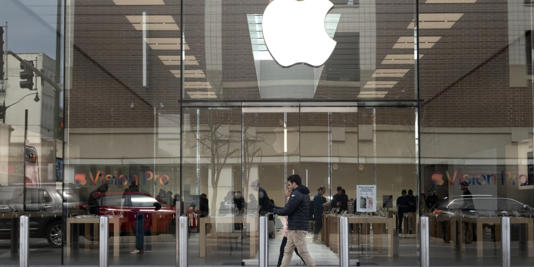Apple Inc., a tech giant renowned for its innovative products and ecosystem, finds itself embroiled in a series of legal battles following the U.S. Justice Department’s sweeping antitrust case. The lawsuits, filed by consumers, allege monopolistic practices and anticompetitive conduct, signaling a critical juncture in the intersection of technology and regulatory scrutiny. This article explores the implications of these legal challenges for Apple, analyzes the underlying allegations, and examines the broader ramifications for the smartphone market and competition in the tech industry.
Understanding the Allegations: The consumer lawsuits against Apple accuse the company of monopolizing the smartphone market and inflating product costs through anticompetitive behavior. These claims echo the allegations made by the Justice Department, which contends that Apple stifled competition by suppressing technologies such as messaging apps, digital wallets, and cross-platform integration. With Apple’s dominant market share in the U.S. and global smartphone markets, regulators and consumers alike are scrutinizing the company’s business practices and market influence.
Legal Battles and Regulatory Scrutiny: The lawsuits filed against Apple represent a significant escalation in the ongoing debate over antitrust regulation in the tech industry. As authorities probe Apple’s conduct and market dominance, the company faces mounting legal challenges and regulatory scrutiny. The Justice Department’s antitrust case, coupled with consumer lawsuits, underscores the growing concerns over Big Tech’s market power and its impact on competition, innovation, and consumer choice.
Implications for Apple and the Smartphone Market: For Apple, the legal battles pose significant risks to its reputation, financial performance, and market position. The company’s stock experienced volatility in response to the lawsuits, reflecting investor concerns over potential legal liabilities and regulatory constraints. Moreover, the outcome of these legal proceedings could have far-reaching implications for Apple’s business model, ecosystem, and strategic initiatives. In the broader smartphone market, the scrutiny of Apple’s practices may catalyze changes in industry dynamics, competition, and consumer welfare.
Challenges and Opportunities: As Apple navigates the legal challenges and regulatory headwinds, it faces a complex landscape of legal, financial, and reputational risks. The company must balance its defense against antitrust allegations with its commitment to innovation, user experience, and shareholder value. Moreover, Apple has the opportunity to engage constructively with regulators, consumers, and industry stakeholders to address concerns, promote competition, and foster a level playing field in the tech sector. By embracing transparency, accountability, and responsible corporate governance, Apple can mitigate regulatory risks and build trust with its stakeholders.
Future Outlook and Strategic Considerations: Looking ahead, the resolution of Apple’s legal battles will shape the future trajectory of the company and the broader tech industry. Whether through legal settlements, regulatory interventions, or judicial rulings, the outcome of these cases will have profound implications for market competition, innovation, and consumer welfare. As Apple navigates this challenging terrain, it must adapt its strategies, policies, and practices to align with evolving regulatory expectations and market dynamics. By embracing a proactive approach to compliance, corporate responsibility, and ethical leadership, Apple can navigate the complexities of antitrust regulation and emerge stronger in the digital economy.
Apple’s legal battles underscore the complexities of regulating Big Tech in an era of rapid technological advancement and market consolidation. As authorities scrutinize the company’s business practices and market influence, Apple faces formidable challenges and opportunities on multiple fronts. By engaging with regulators, consumers, and industry stakeholders in a transparent and collaborative manner, Apple can address concerns, uphold competition, and safeguard its long-term sustainability and success in the global marketplace.
